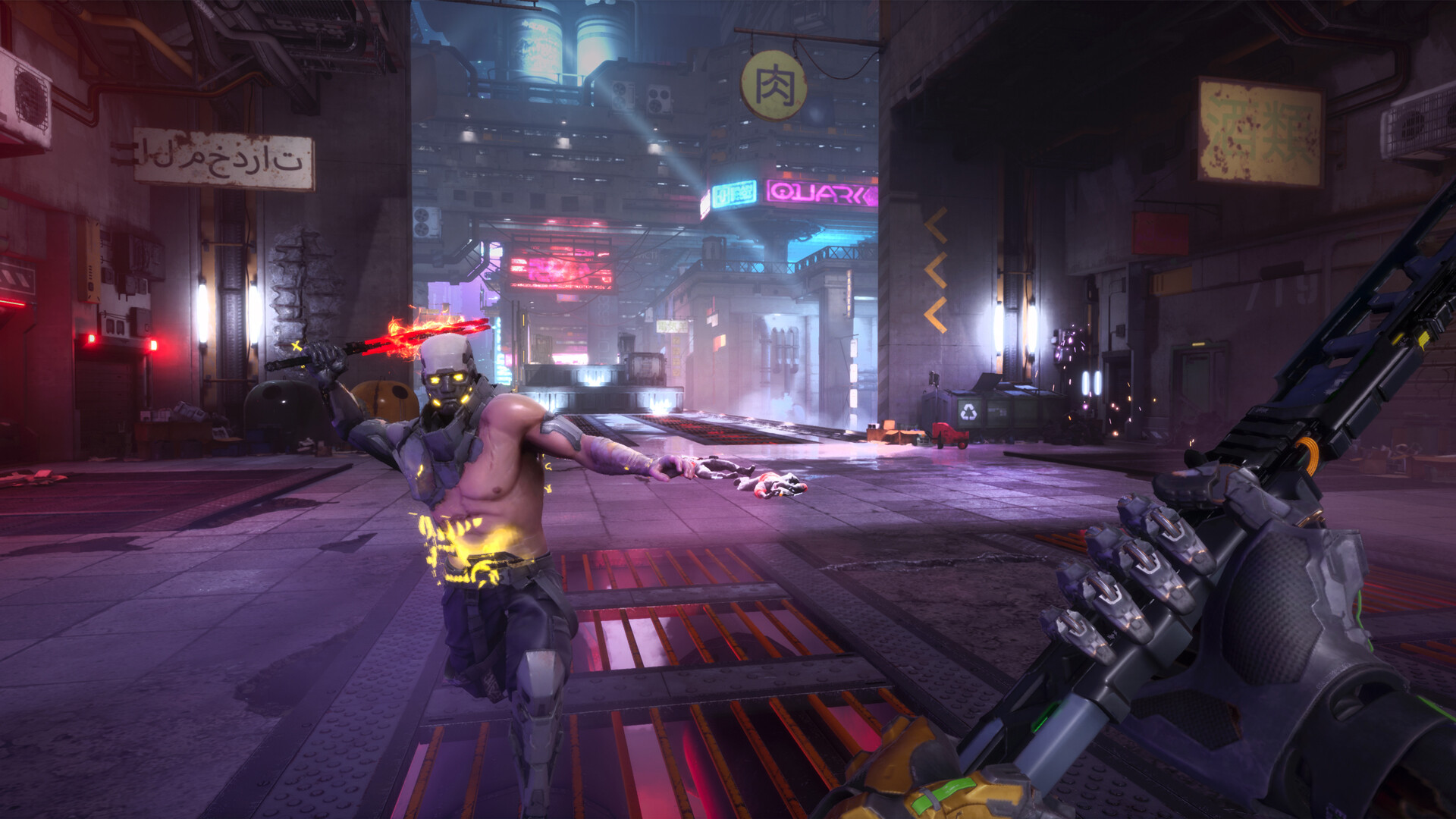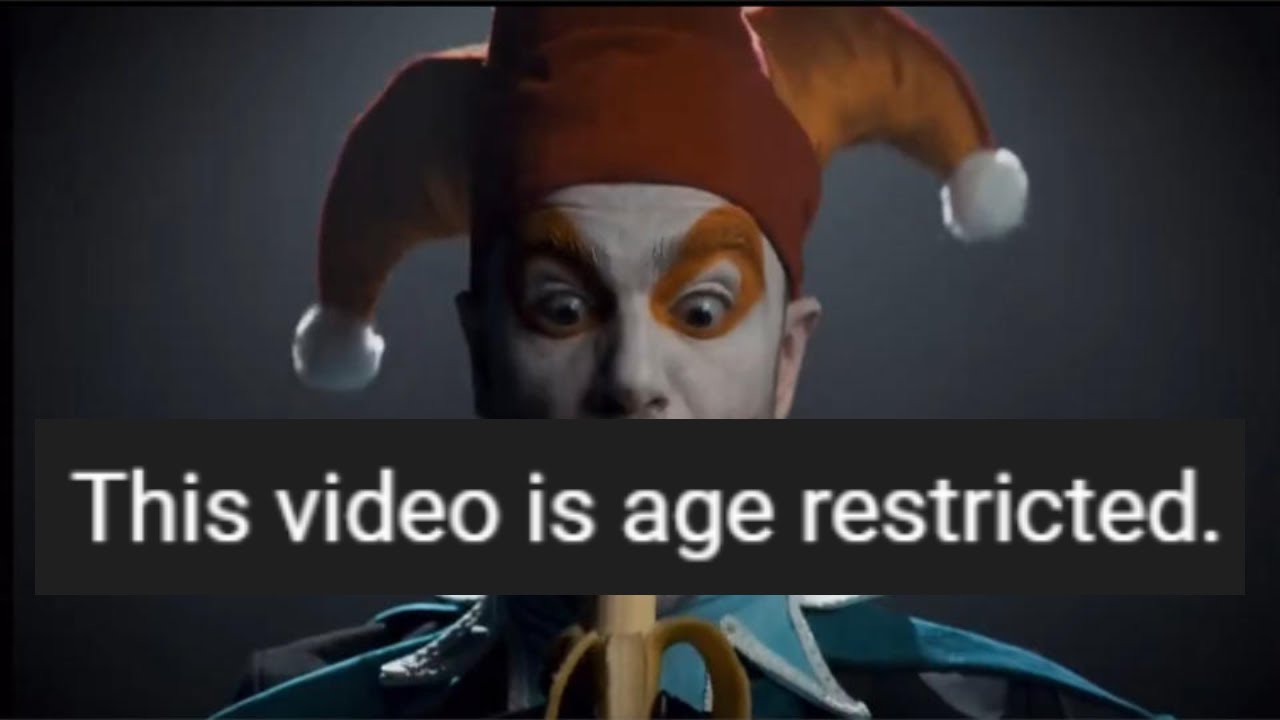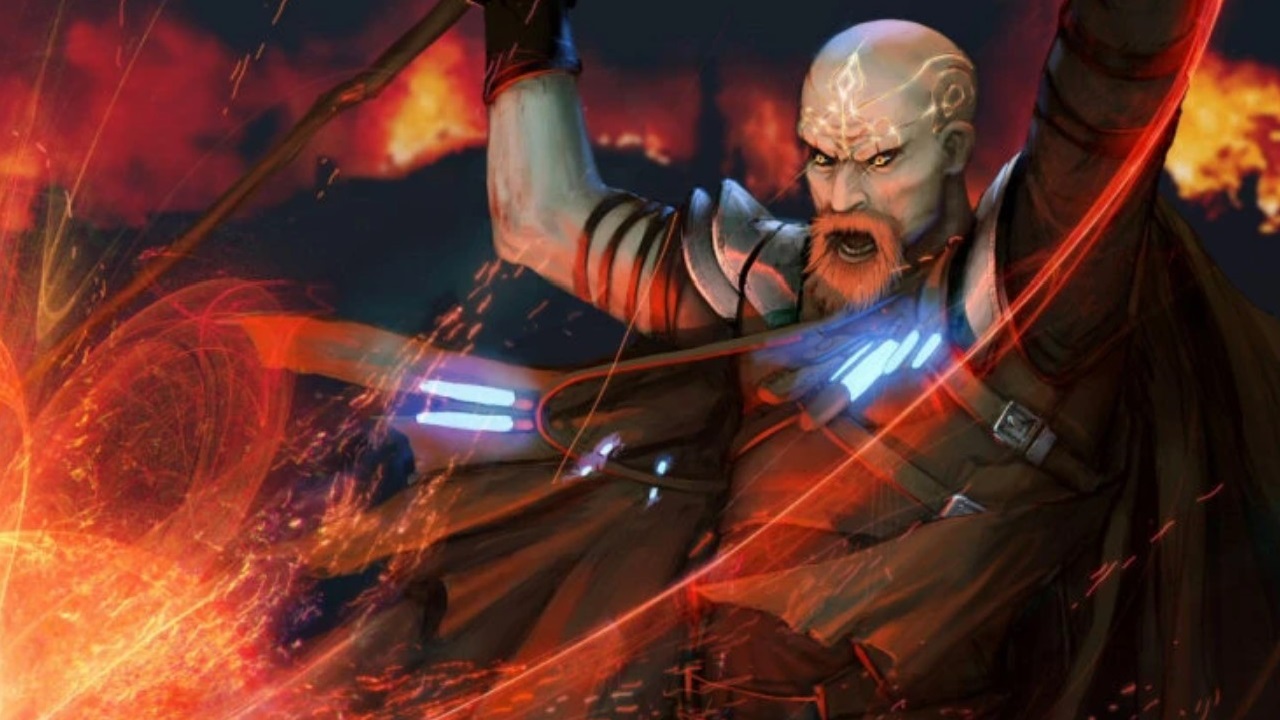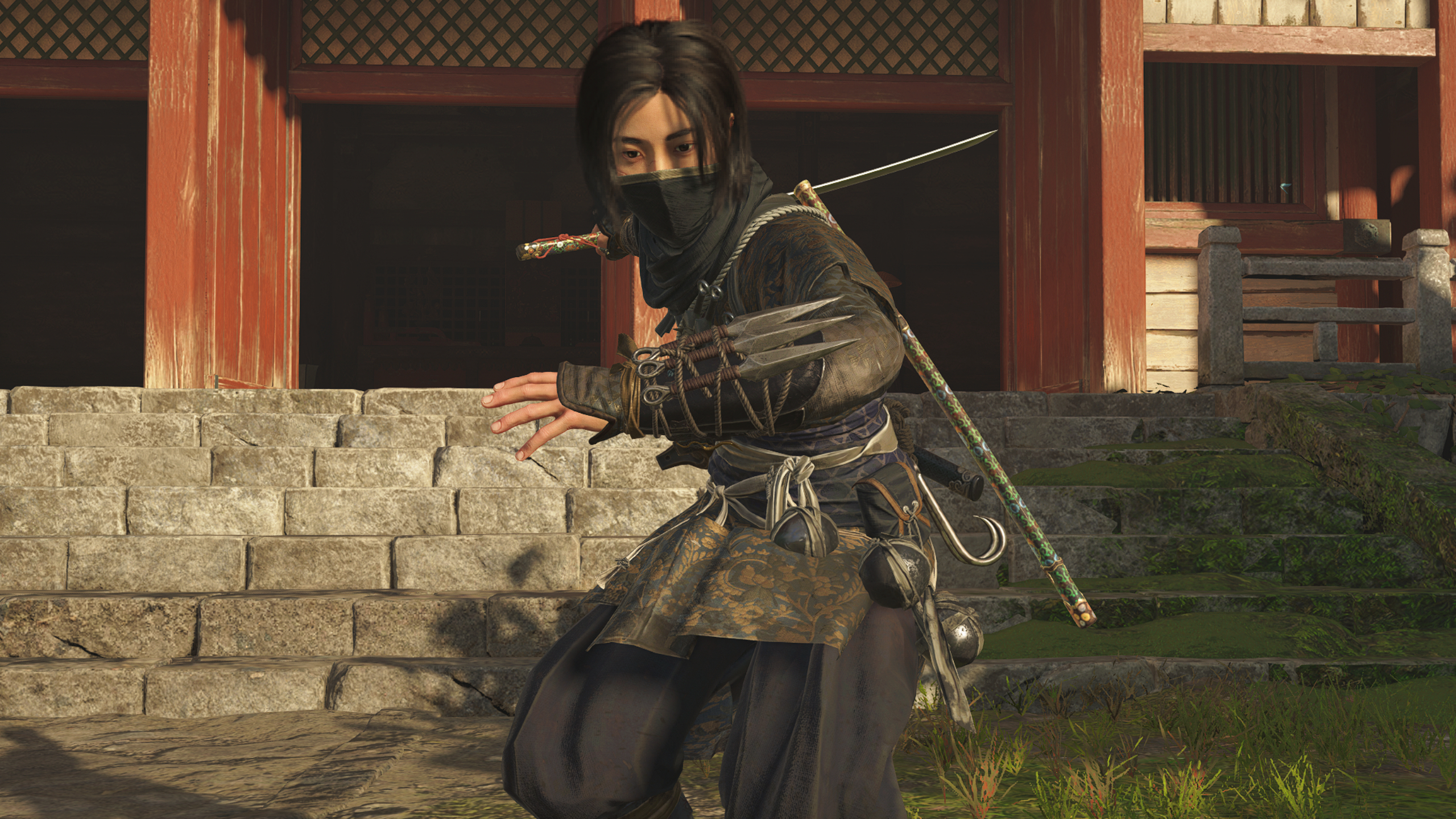What is it? A cyberpunk action game with more spills than thrills.
Expect to pay $40/£35
Developer One More Level
Publisher 505 Games
Reviewed on GeForce GTX 1660 Ti, AMD Ryzen 7 3750H, 16GB RAM
Multiplayer No
Link Official site
The heart of the first game is still here, beating fast and loud. You still die in one hit, and so too does every non-boss enemy you come across. Your primary means of attack remains a sword, which means getting up close and personal with your foes regardless of whether they want to whack you with a stick or disintegrate you from afar with a laser. Fans of the original will feel at home… when they’re not feeling disappointed.
Ghostrunner 2 is an awful lot like Ghostrunner 1 when it comes to the bite-sized combat and/or parkour gauntlets between (usually) generous checkpoints—and that’s no bad thing. A Ghostrunner 2 level section is like a complicated guitar solo. Watching a performance by somebody who’s mastered it is jaw-droppingly impressive, while your own attempt is likely to be full of false starts and embarrassing fumbles.
(Image credit: 505 Games)
The fragile nature of your character means you will die, by design, a lot. The instant nature of respawns—you can even disable the death screen—and regular checkpoints mean that this never feels unfair. Annoying, sure; swear-inducing, sometimes, absolutely. But not unfair. So far, so Ghostrunner. However, Jack (the player character) appears to have been slowed by a small but noticeable amount compared to his first adventure. This sets off what turns out to be the first in a series of alarm bells.
Cyberpunk rock
Ghostrunner 2 was an opportunity to trim the fat from what was already a good game in order to make something truly great. Instead, what we have here is a seven hour game wearing a fourteen hour jacket. Your playtime will vary depending on factors such as skill and your determination to seek out collectibles, but the point is, all that extra material keeps getting in the way.
The first five hours or so take place in the setting of the first game, Dharma Tower. Appropriately enough, this early part is where the experience feels most like the original. Although there are now breaks in the action for a bit of worldbuilding, where you chat with friendly characters between every few missions, parkour and gory combat are still married in brutally unforgiving harmony. Bouncing between walls and hurling yourself over bottomless pits, getting in a few kills before leaping away from a flurry of bullets, remains a thrill. Then, eventually, you find the bike, and it all starts to go a bit wrong.
(Image credit: 505 Games)
If you played the demo and weren’t impressed by the bike section that ended it, I’m afraid it rarely gets any better than that. Its primary function is to carry you from area to area of the disappointingly beige semi-open world. There are some neat ideas—leaping over laser gates mid-ride, then grappling back to your bike without slowing down, ranged and melee attacks while riding, riding along walls and ceilings then back down to the ground again—but none of them are exploited to their full potential. There’s one great bike sequence involving escaping from (and then riding through) a giant mechanical worm, and that gives a glimpse of what could have been. The problem with Ghostrunner 2 as a whole, and especially with the bike sequences, is that there’s too much of it.
Ghost’s busted
Even outside the tower, things aren’t significantly less linear than in the first game. The environments are however taller, wider, and more open. This means a problem that was rare but annoying in the original is now fairly common and annoying. The number of jumps I fumbled in my playthrough is either hilarious or embarrassing, depending on how you look at it. That’s fine, it’s all part of the experience. Too often however, when I fell short of a platform or a wall, I wouldn’t fall to my death. Instead, I’d land on some awkwardly placed scenery that wouldn’t kill me, but also wouldn’t let me get back up to the play area. My only option would be to sheepishly jump to my doom and restart from the last checkpoint.
Even ignoring frame rate issues that might be fixed by launch, I would occasionally hit technical woes that drew me out of the experience. Most of the upgrade machines outside of the tower wouldn’t work for me, and a few times I fell through the world itself. The bike also introduces brand new opportunities for getting stuck in nooks and crannies, an issue not helped by the fact that the way forward is occasionally far from clear.
(Image credit: 505 Games)
All the clutter is a huge shame. When Ghostrunner 2 is good, it’s really good. Although combat sections can involve a dozen or fewer enemies, they’re no less satisfying to finally power through. Once you start to unlock extra weapons and abilities there’s an element of choice too, with a carefully judged shuriken throw or deployment of invisibility potentially being the key to victory. There are even ultimates now, which can help you through the tightest of spots.
Peter Parkour
Parkour sections are less consistently enjoyable, but the best make you feel like the cybernetically enhanced badass Ghostrunner wants you to be. Chaining jumps and wallruns with puzzle solving and split-second decisions (no harm in employing your bullet time-esque ability there) can provide a real sense of achievement.
(Image credit: 505 Games)
Then there are the bosses, three of which are the traditional toe-to-toe, whack ‘em with a sword experiences that you might expect. None are as painfully challenging as the hardest of the first game (ugh, Hel), but they sure put up a hell of a fight, and victory feels incredibly well earned thanks to your fragile nature. They’re wisely sprinkled with a few checkpoints, too, ensuring that you won’t be hurling your keyboard at the wall while screaming swears you weren’t even aware that you knew.
This is a perfect example of the fact that quality and quantity are two very different things. This could have been an excellent game. Instead it’s one that’s often good, but far too often isn’t.











